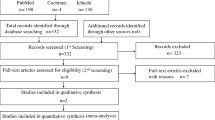Abstract
The utilization of granulocyte colony-stimulating factors (G-CSF) in febrile neutropenia has been controversial for many years. Berghmann et al.’s meta-analysis again demonstrates that G-CSF does not have an impact on mortality in febrile neutropenia, because the depth and duration of neutropenia in the trials are variable. Also, with mortality from febrile neutropenia less than 15%, any further study would require a vast number of patients to demonstrate a difference in mortality. The Elting and Cantor review provides a new paradigm to studies in patients with febrile neutropenia. These authors recognize that cost, quality of life, life-years gained and adverse events experienced with new therapies should be evaluated, in addition to the standard measures of infection resolution and related mortality. Therefore, for the evaluation of new therapeutic interventions, a consensus on stratified risk factors or the use of an already established model could provide end-points with comparable measurements.
Similar content being viewed by others
Author information
Authors and Affiliations
Additional information
Electronic Publication
Rights and permissions
About this article
Cite this article
Forrest, G.N., Schimpff, S.C. & Cross, A. Febrile neutropenia, colony-stimulating factors and therapy: time for a new methodology?. Support Care Cancer 10, 177–180 (2002). https://doi.org/10.1007/s00520-002-0347-2
Published:
Issue Date:
DOI: https://doi.org/10.1007/s00520-002-0347-2




